Staff
Professor Chris Hepburn
Te Tiaki Mahinga Kai Project Co-Coordinator
University of Otago
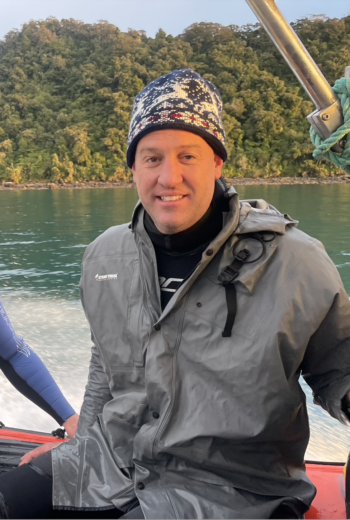
Chris is the director of the Aquaculture and Fisheries Programme at the University of Otago. His work focuses on coastal ecosystems in southern New Zealand and in particular the impacts of human-induced change (e.g. elevated carbon dioxide, nutrient loading, sedimentation, fishing, invasive species) on the ecology of coastal seas. Chris leads a laboratory that is currently working on diverse topics that focus on habitats and species that support mahinga kai. Chris and his students work within Taiāpure and Mātaitai throughout Ngāi Tahu’s Takiwa and more broadly in other coastal regions of New Zealand. He is a member of the East Otago Taiāpure Management Committee and is committed to supporting aspirations of local communities for better management of fisheries and ecosystems they rely on.
Nigel Scott
Te Tiaki Mahinga Kai Project Co-Coordinator
Te Rūnanga o Ngāi Tahu
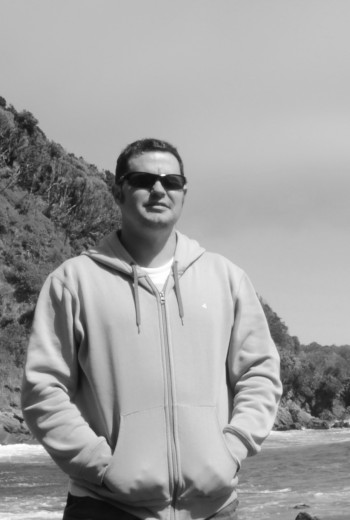
Nigel is the primary advisor for Te Ao Turoa, the environmental unit of the Ngāi Tahu Tribal Council. Nigel’s core function for Te Ao Turoa is to protect and enhance the customary fishing rights of Ngāi Tahu Whānui. He helps build the capacity of Ngāi Tahu to implement the customary non-commercial provisions of the Treaty of Waitangi (Fisheries Claims) Settlement Act 1992, with particular emphasis on the identification and protection of areas of importance for customary fishing through the establishment and ongoing management of tools like Mātaitai and Taiāpure. Nigel believes that the development of community-based tools to conduct baseline surveys of fisheries resources and to assess harvesting levels will greatly assist each reserve’s customary managers to better manage their areas, which in turn should lead to better environmental outcomes.
Brendan Flack
Kāti Huirapa Rūnaka ki Puketeraki and Coastal People; Southern Skies
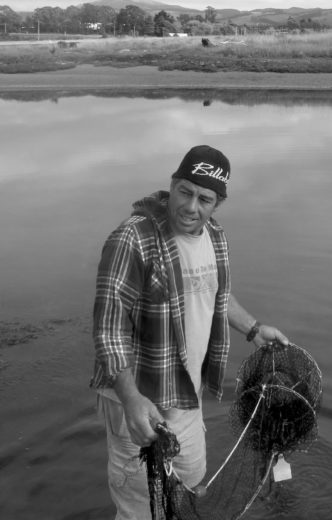 Brendan is Kāi Tahu (Kai Te Ruahikihiki) and a Tangata Tiaki for Kāti Huirapa and Chair of the East Otago Taiāpure Committee. He works as a researcher on Te Tiaki Mahinga Kai and leads research within the East Otago Taiāpure as well as supporting the research team in the field when working in other areas. Brendan is leading the He Pataka Wai Ora Project, that monitors the health of the Waikouaiti River, has an important role in the development and testing of the Marine Cultural Health Index (MCHI) tool and is also involved in the Marine Metre squared programme (www.mm2.net.nz) as well as working for Kāti Huirapa Rūnaka ki Puketeraki.
Brendan is Kāi Tahu (Kai Te Ruahikihiki) and a Tangata Tiaki for Kāti Huirapa and Chair of the East Otago Taiāpure Committee. He works as a researcher on Te Tiaki Mahinga Kai and leads research within the East Otago Taiāpure as well as supporting the research team in the field when working in other areas. Brendan is leading the He Pataka Wai Ora Project, that monitors the health of the Waikouaiti River, has an important role in the development and testing of the Marine Cultural Health Index (MCHI) tool and is also involved in the Marine Metre squared programme (www.mm2.net.nz) as well as working for Kāti Huirapa Rūnaka ki Puketeraki.
Dr. Daniel Pritchard
TMK Research Limited
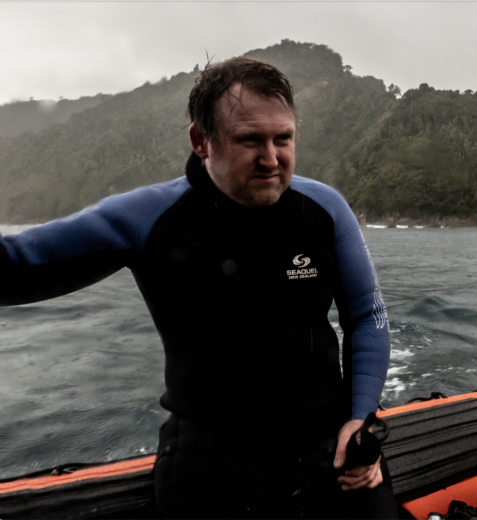
Daniel obtained his PhD in Marine Botany from the University of Otago in 2011 and spent three years at Queen’s University Belfast (Northern Ireland) researching the impacts of wastewater inputs and marine renewable energy devices on nearshore marine ecosystems. His research interests enlie in the use of technology and quantitative methods at all stages of the research process, but in particular to communicate science to a broad audience. Daniel worked as a Vision Mātauranga Placement fellow in 2014, working jointly between Toitū Te Whenua (Ngāi Tahu) and the Department of Marine Science and Te Tiaki Mahinga Kai (University of Otago) on a two-year project entitled Interweaving mātauranga and science through online tools. Daniel is currently the Director and Principal Scientist for TMK Research Limited, and continues to support local communities and their aspirations for healthy fisheries.
Dr. Matt Desmond
University of Otago
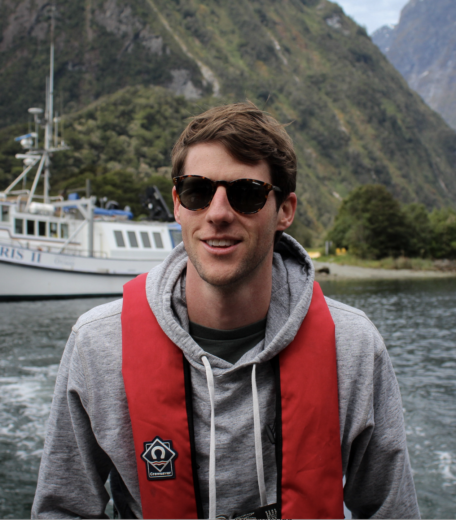
Matt completed his PhD degree at the University of Otago where he worked on the ecology of kelp-forest ecosystems within the East Otago and Stewart Island regions. Over this period, and during his undergraduate studies, he worked closely with the TMK research team. Matt worked as a Vision Mātauranga Placement Fellow from 2016-2018, co-funded through Te Rūnanga o Ngāi Tahu, Vision Mātauranga Capability Fund (MBIE) and the University of Otago. His project saw him work alongside Tangata Tiaki/Kaitiaki, CPA managers, scientists and the TMK team to produce habitat maps of CPAs within the rohe moana of Te Rūnanga o Ngāi Tahu. The information allows managers to visualise and quantify the distribution of key fisheries habitats within protection areas, as well identify important areas for protection and assess future changes to habitat. Matt is currently the lead researcher on project, Iongairo, creating habitat maps in Te Pātaka o Rākaihuatū/ Banks Peninsula.
Dr. Gaya Gnanalingam
University of Otago
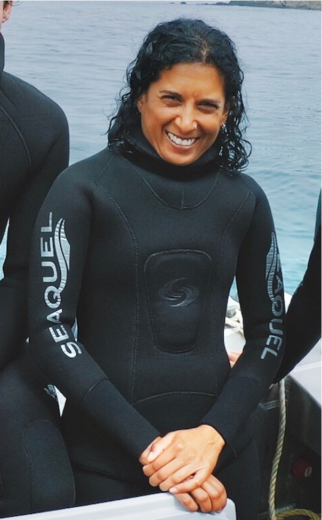 Gaya completed her PhD in ecological sciences at Old Dominion University in the US (having been awarded a Fulbright Scholarship in 2013). Gaya previously completed a masters degree in Ecology at the University of Otago as part of the TMK research programme. Her work looked at reproduction and localised management of blackfoot paua in the East Otago Taiāpure. Gaya then worked as a Vision Mātauranga Placement Fellow, co-funded through Te Rūnanga o Ngāi Tahu, Vision Mātauranga Capability Fund (MBIE) and the University of Otago. Her work focused on modelling harvest of pāua in CPA’s within the rohe moana of Te Rūnanga o Ngāi Tahu. Gaya is now a lecturer in the Department of Marine Science at the University of Otago. With a background in science and law, Gaya is interested in how we can use science to better inform our fisheries regulations and management of our marine resources.
Gaya completed her PhD in ecological sciences at Old Dominion University in the US (having been awarded a Fulbright Scholarship in 2013). Gaya previously completed a masters degree in Ecology at the University of Otago as part of the TMK research programme. Her work looked at reproduction and localised management of blackfoot paua in the East Otago Taiāpure. Gaya then worked as a Vision Mātauranga Placement Fellow, co-funded through Te Rūnanga o Ngāi Tahu, Vision Mātauranga Capability Fund (MBIE) and the University of Otago. Her work focused on modelling harvest of pāua in CPA’s within the rohe moana of Te Rūnanga o Ngāi Tahu. Gaya is now a lecturer in the Department of Marine Science at the University of Otago. With a background in science and law, Gaya is interested in how we can use science to better inform our fisheries regulations and management of our marine resources.
Lucy Coyle
University of Otago
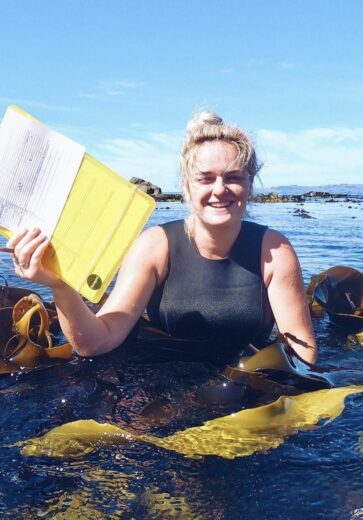
Lucy has recently completed her Masters in Science Communication at the University of Otago. Her work looked at investigating an online platform where data could be shared between scientists and communities, using the East Otago Taiāpure as a case-study. Lucy then worked as a Vision Mātauranga Placement Fellow, co-funded through Te Rūnanga o Ngāi Tahu, Vision Mātauranga Capability Fund (MBIE) and the University of Otago, where her work looked at extending her thesis, investigating effective communicative platforms to share and cultivate scientific information between scientists and Customary Protected Area managers. Lucy continues to support local communities through creating communicative resources that detail local fisheries research.
Dr. Alana Alexander
University of Otago
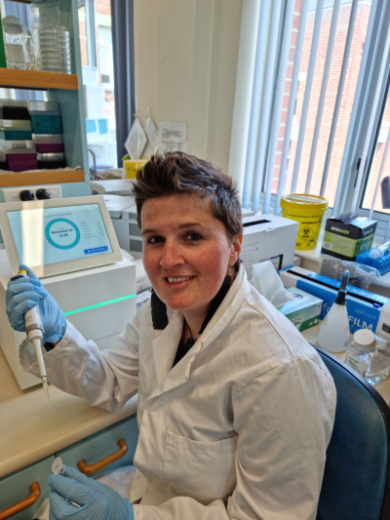 Alana (Te Hikutū: Ngāpuhi, Pākehā) is a lecturer in the Department of Anatomy at the University of Otago. Her work focusses on the use of genomics to learn more about both taonga species (particularly ngā ika moana/cetaceans – whales and dolphins), and species that pose threats to te taiao (e.g. possums). In addition, Alana has a strong interest in putting genomics tools in the hands of hapori Māori to fulfil their own aspirations, working in with Te Pua Taketake/the Indigenous Genomics Institute and as a “pet genetics nerd” for the East Otago Taiāpure. Alana grew up in Tāmaki, before heading to the USA to do her PhD at Oregon State on genetics of parāoa (sperm whales) followed by a postdoc at the University of Kansas working on a bunch of different critters. She returned to Aotearoa at the end of 2017, to a position with the University of Otago. Her mahi is currently funded by a Rutherford Discovery Fellowship, the University of Otago, Genomics Aotearoa, and Coastal People Southern Skies.
Alana (Te Hikutū: Ngāpuhi, Pākehā) is a lecturer in the Department of Anatomy at the University of Otago. Her work focusses on the use of genomics to learn more about both taonga species (particularly ngā ika moana/cetaceans – whales and dolphins), and species that pose threats to te taiao (e.g. possums). In addition, Alana has a strong interest in putting genomics tools in the hands of hapori Māori to fulfil their own aspirations, working in with Te Pua Taketake/the Indigenous Genomics Institute and as a “pet genetics nerd” for the East Otago Taiāpure. Alana grew up in Tāmaki, before heading to the USA to do her PhD at Oregon State on genetics of parāoa (sperm whales) followed by a postdoc at the University of Kansas working on a bunch of different critters. She returned to Aotearoa at the end of 2017, to a position with the University of Otago. Her mahi is currently funded by a Rutherford Discovery Fellowship, the University of Otago, Genomics Aotearoa, and Coastal People Southern Skies.
Dr. Nathan Kenny
University of Otago
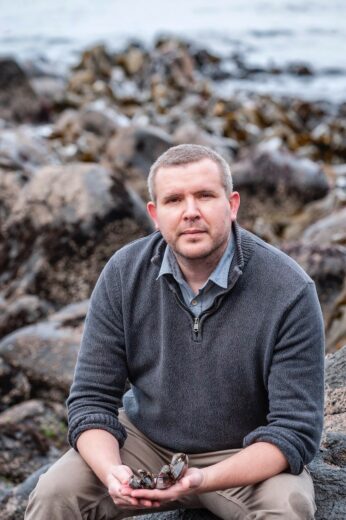 Nathan (Ngāi Tahu, Te Ātiawa, Pākehā) is a lecturer at the Biochemistry Department and Rutherford Discovery Fellow. He is interested in how organisms adapt to extreme environments, and particularly how their genomes help them evolve to survive in these conditions. He works primarily with marine invertebrates, and recently has begun investigating the resilience of kuku/kūtai (green lipped mussels) to climate change conditions. He is interested in how resilient traits could allow them to be selectively bred for aquaculture and conserved in the wild. His team works locally within the Taiāpure, further afield around the top of the South Island, and more broadly across the motu, together with the Cawthron Institute, Wakatū Incorporation, and other stakeholders in Aotearoa’s marine future.
Nathan (Ngāi Tahu, Te Ātiawa, Pākehā) is a lecturer at the Biochemistry Department and Rutherford Discovery Fellow. He is interested in how organisms adapt to extreme environments, and particularly how their genomes help them evolve to survive in these conditions. He works primarily with marine invertebrates, and recently has begun investigating the resilience of kuku/kūtai (green lipped mussels) to climate change conditions. He is interested in how resilient traits could allow them to be selectively bred for aquaculture and conserved in the wild. His team works locally within the Taiāpure, further afield around the top of the South Island, and more broadly across the motu, together with the Cawthron Institute, Wakatū Incorporation, and other stakeholders in Aotearoa’s marine future.
Dr. Roseanna Gamlen-Greene
University of Otago
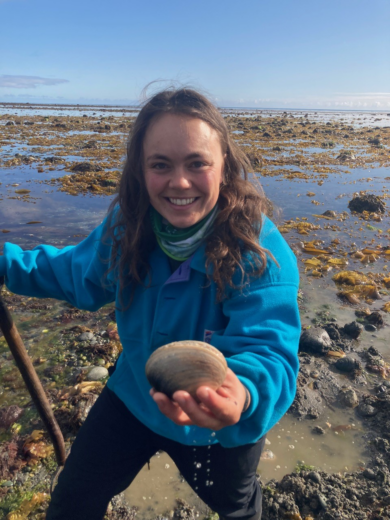 Roseanna is a conservation ecologist in the Department of Biochemistry at the University of Otago. She works in a range of ecosystems – from freshwater to terrestrial and marine, using a range of tools, such as field surveys, experiments and genomics, to help answer questions to help our taiao/environment. She is passionate about working with local people (both mana whenua and the wider community) where she does her research and being accountable to those communities. Roseanna grew up in Te Tai Poutini (West Coast of the South Island) and Ōtautahi Christchurch and did her PhD at the University of British Columbia, Canada, working on amphibian conservation ecology, with local communities.
Roseanna is a conservation ecologist in the Department of Biochemistry at the University of Otago. She works in a range of ecosystems – from freshwater to terrestrial and marine, using a range of tools, such as field surveys, experiments and genomics, to help answer questions to help our taiao/environment. She is passionate about working with local people (both mana whenua and the wider community) where she does her research and being accountable to those communities. Roseanna grew up in Te Tai Poutini (West Coast of the South Island) and Ōtautahi Christchurch and did her PhD at the University of British Columbia, Canada, working on amphibian conservation ecology, with local communities.
Dr. Peter Russell
University of Otago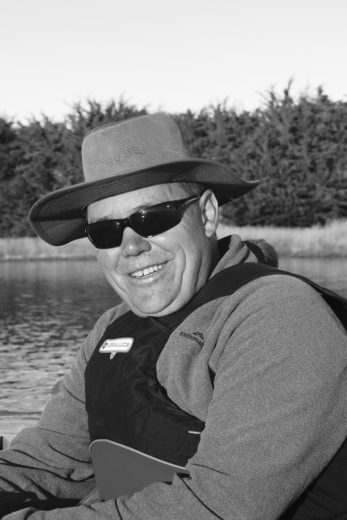 Pete comes from Whanganui and his research background is in Physics, Electronics and Physical Oceanography. His PhD researched how water flows round bends in rivers, estuaries and coastal headlands and how the flow pattern causes erosion/accretion of material along river banks and up-welling at coastal headlands. Pete’s current research interests include, flow related process in rivers and estuaries, physical oceanography of the littoral zone, physical processes and energy use in aquaculture. Pete was a researcher on the Ministry for Primary Industries funded Nga Tipa o Rakiura, a baseline survey of scallops in Te Whaka a Te Wera Mātaitai on Rakiura/Stewart Island Scallops. Pete also provided support in the East Otago Taiāpure’s successful challenge of Port Otago’s programme to deepen Otago Harbour and dispose sediment near the Taiāpure in the Environment Court. He currently works as a teaching fellow at the Dept. of Marine Science and as a researcher on He Pataka Wai Ora.
Pete comes from Whanganui and his research background is in Physics, Electronics and Physical Oceanography. His PhD researched how water flows round bends in rivers, estuaries and coastal headlands and how the flow pattern causes erosion/accretion of material along river banks and up-welling at coastal headlands. Pete’s current research interests include, flow related process in rivers and estuaries, physical oceanography of the littoral zone, physical processes and energy use in aquaculture. Pete was a researcher on the Ministry for Primary Industries funded Nga Tipa o Rakiura, a baseline survey of scallops in Te Whaka a Te Wera Mātaitai on Rakiura/Stewart Island Scallops. Pete also provided support in the East Otago Taiāpure’s successful challenge of Port Otago’s programme to deepen Otago Harbour and dispose sediment near the Taiāpure in the Environment Court. He currently works as a teaching fellow at the Dept. of Marine Science and as a researcher on He Pataka Wai Ora.
Dr. Will Rayment
University of Otago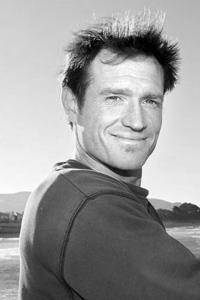
Will is a lecturer in the Department of Marine Science. He works on the ecology and conservation biology of whales and dolphin, mapping habitats and the effectiveness Marine Protected Areas and MPA networks. Will supervises students within the TMK programme and is involved with various TMK projects.
Tātai kōrero ka ngaro, tātai kōrero ka rangona.
